11 Experts Answer: 3 Things I Wish I Knew Before Starting My Web Career
We all know that hindsight is 20/20; especially these 11 designers and developers well into their web career.
Every one of these professionals candidly share their mistakes, faux pas, and “If only I’d known!” moments throughout their web career and what they learned from it.
My hope is for you to realize everyone’s first years are never easy, and to be inspired by the wisdom of these webdev experts. Read on and enjoy!
Tobias Michel of tobiasmichel.com:

1. Turning a hobby into freelance work isn’t always a dream
At the beginning I would volunteer at youth events by designing posters and flyers, then translating them into websites with all the additional info needed about speakers, bands, food, accommodation and how to get there. It was the late 90s / early 00s I had to make a career choice and web design looked the most realistic - besides music, speaking and video production. I started with a huge amount of passion and interest in all the facets of design at a young age and did it because I enjoyed it.
Besides school and friends it was awesome and felt almost recreational. However I still remember after about one year of full-time design work every single day for up to 10 hours, I ran out of creative ideas and also didn’t know what to do for recreation. Turning a hobby into daily work made me wonder what to do after work. Finding a balance was very hard (and sometimes still is).
2. Being multi-passionate can be a blessing and a curse
I enjoyed both freelancing for small clients and being employed by agencies to work for bigger clients. I also would sometimes design for print and sometimes for web. What I discovered was the following:
Small clients want everything and gladly hire you to create a logo, a brochure, a video, a website, take photos, create ads and banners - which is something I’d love to do as I need variety - but small clients can’t afford it! (Frustrating for both them and me) However, working with big clients wasn’t the answer either. Typically they could afford almost anything yet projects were often large and involving many people, each with a single task. Often this would lead to very mundane work. Everything would take a long time and had to be approved by tons of leaders or even the board of directors - who most often don’t understand design, target markets and being relevant. Some foolishly either rely on “what worked in the past” or even worse simply reject months of work because “they didn’t like it”.
3. The web is always changing (yet learning the latest web design trend won’t keep you afloat)!
I wish somebody would have told me that learning more about freelance client-, business- and financial management was as important if not more so than learning the latest HTML & CSS in order to be a successful designer.
We can get too hung up in trends and technology. Nowadays I do less and less web design the old way, or even the “old” Wordpress way, when I meet with a new client. I am not afraid to really look at what’s best for the client in the long run. Not just for me and my current skill-level or need for income. Not every client needs a “custom designed” website that I spend months setting up, I don’t have to reinvent the wheel again and again.Sometimes a hosted Wordpress site is fine, other times a Squarespace site is just as fine (or better)! Even a landing page leading to a free video series can work for the best. My goal today is less stress and more automation for me and the client. And I still believe that one (wo)man with a laptop can change the world!
Kelly Ward of digitalKOnline.com:
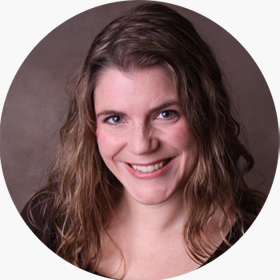
1. I need to treat myself like my best client.
I should have scheduled time in my calendar to work on my business – every single week. For way too long, I put 110% into my clients’ projects and neglected my own business. Before I knew it my website was outdated, my social media accounts were like ghost towns, and I had an overwhelmingly long and daunting “to do” list for my business. Now I block out time in my schedule to work on my own “stuff”. I have to remember that I need to treat my business projects like I treat my clients’ projects. I would never neglect my clients; so I can’t do that to my business either.
2. I can (and should) turn away some clients.
Not everyone is going to be a good fit to work with. But in the beginning of my career, I would say “yes” to every opportunity that came my way. I would ignore the red flags that popped up when I would talk with a potential client. And every time, I would end up regretting it. I am happier when I work with my ideal clients: people I enjoy talking with, people who value my expertise, and people who I can really connect with their vision and expectations. When I work with someone who doesn’t “fit” this description, it’s going to be very difficult to enjoy working on their project. Now I remind myself that I only want to book projects in my schedule with people that I am excited to work with.
3. I need to be business savvy.
When I decided to start my own business as a web designer, I thought, “I know how to design websites – so I can be a freelance web designer!” What I didn’t take into account was that I also had to know how to run a business. You can be the best web designer in the world; but if you don’t know how to run a business, your business is going to fail. Now I make sure to not only keep learning about web design and coding and social media… but I also invest in training on how to be a successful business owner.
Andrew Brockenbush of beefymarketing.com:
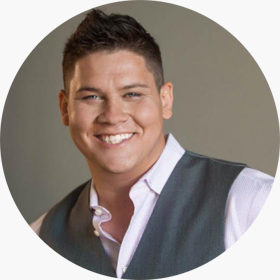
1. Being more focused on emerging technology and developments in our industry.
Focusing and pinpointing what areas in our industry that we could have been specialists in would have helped us become known for doing one thing really great instead of doing everything "pretty good”. Early in our career I tried to do too many things and it distracted us from honing in on what we do best.
2. Having A “Trust, But Verify” mentality.
One of our biggest opportunities when starting our business was understanding our finances. Sometimes it is best just to surround yourself with the people who know how to handle the things you are avoiding because you don’t understand them as well as someone else. Don’t let yourself go down a rabbit hole that you could have avoided by handling issues head on.
3. Sell a product not a service.
My agency now sells small monthly retainers and before we sold one off jobs that really put pressure on the business to always be looking for the next penny. Had we been focusing on retainer models for the lifetime of the company, we would be in a much better position today. Monthly retainers allow you to grow and scale at a pace that is comfortable and manageable, especially for smaller teams.
Sarah Eggers of SarahEggers.com:
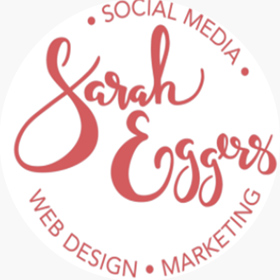
1. That I am Capable
When you’re going freelance as a web designer, sometimes you just need someone cheering you on, reminding you that, yes, you can do this. That confidence that you can make this a successful career is vital to how you pitch and price your work.
2. The only way to be good is to practice with clients
I can make up as many fake clients and fake work as I want, but it pales in comparison to practice with real clients. Get clients. Make mistakes, and correct them. Learn as you go.
3. 60% of my job is web design and 40% of my job is managing clients.
I think every web designer should realize that 40% of their work is managing clients. It’s your job to make this whole experience pleasant and seamless. It doesn’t matter if your work was excellent if your communication skills sucked. The client’s experience of you and your work must be meticulously managed to make it a stellar experience.
Erin Flynn of erineflynn.com:

1. Have a network
When I was starting out I worked in a little bubble--and didn't reach out to others. This was a huge mistake! Having a network of others in your industry and in complementary industries is crucial to getting customers and growing your business--or if you work for someone else, it can help you grow your skill set and become more prominent in the industry. Now, 4.5 years into running my own web design business, I never have to seek out clients, they come to me via the connections I've made. Make it a goal to reach out to 3-5 people each month and just connect! Your network will grow quickly, and you'll get new opportunities for work and friendships.
2. You can't do it alone.
Networking isn't important just to get clients, but to build relationships with others who "get it" and understand what it's like to work in web design. I highly recommend starting or joining a mastermind group so you can connect with others who understand what you're going through and help you out in tricky situations. The relationships I've made with the women in my mastermind groups have helped my business (and my sanity) enormously! Sometimes you just need another set of eyes on your problems, and they disappear.
3. Don’t be afraid to grow slowly.
We all hear about these "overnight" success stories. Don't let someone else's success make you feel like a failure. We all grow and learn at different speeds and there's nothing wrong with that. Take your time, make a plan, and revise your plan when necessary. You've got this. Focus on you, and don't worry about how well you think others are doing.
Julie Daq of islandbusinessdesign.com:
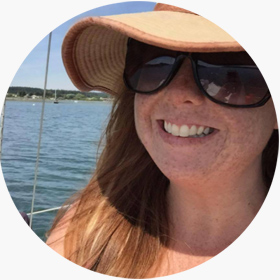
1. Consistency really does pay off
If and only if, you are working on the right things in the right time for your business. You can't just copy what other people are doing in their business and think it's going to work for you because there are distinct phases, and you're likely not in the same phase.
2. How to Define Myself
As someone who is multi-passionate and loves everything business (and had a hard time settling in on my business), I wish someone had told me to evaluate how I want to be seen by others - in other words, when someone asked "what do you do?", I would have an answer I felt proud of... because if you can't promote yourself, that's going to be a huge problem.
3. My Ability to Figure Things Out
There are classes and coaching out there for pretty much anything and everything you can think of (and there's a time and place you need help to grow and move ahead)- but you need to have confidence in your ability to figure out what you need to do in your business to make it the product/service that your people want and need.
Krystal Oickle of studiokrystal.com:
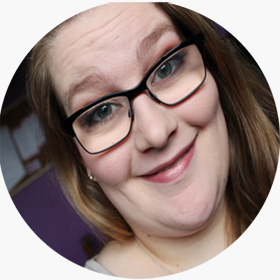
1. I wish I would have discovered my passion sooner
I wish I would have known my passion and interest in website designing and graphic designer sooner. Ultimately I would have launched my business much sooner and would have began to built my career when times were less stressful and flexible.
2. I wish people would have told you how hard it really is.
Most of us are very used to seeing the final website project or the final graphic design process. But there are very few designers that show their process. I wish I would have been able to see more of this to understand the complexity of working with clients, doing all of the design work and running my own business.
3. I wish I would have known more about tools, techniques and platforms before really digging into my own business.
I'm very simple in my business and when I do website design and graphic design work. I wish I would have known of a resource list of all the platforms out there available to me so I could have conducted much more research to see which would have benefited me more. I'm not having to go through this 6-months into my business and shift things around.
Zakiyah Kelly of zakiyahsdesigns.com:
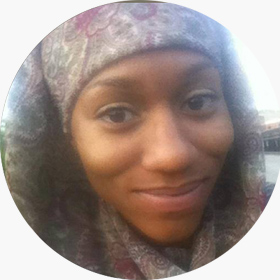
1. The importance of networking.
It's difficult to establish your name if no one knows about you or your services. Going to events and even being active in Facebook Groups can help you become established in a number of communities.
2. Asking for help isn't a sign of weakness.
Sometimes we feel that we have to know it all and do it all to prove our expertise. As a result, we may stay stuck on the same tech issue for hours or even days. It can be very beneficial to have an extra set of eyes view your work because the solution may be very simple, but it can seem like a daunting task when your brain shuts down.
3. Having a blog can take you far.
When you set up new social media accounts, the ample amount of "likes" and follows can make it difficult to prove your ability to get a job done. A blog allows you to share your knowledge on a variety of topics that assist people with their pain points. A blog also shows that you know what you're talking about and that you have the skill set to complete certain tasks.
Kathryn Marr of blueivorycreative.com:

1. Be Open to Criticism
You should take things personally and not take them personally at the same time. Treat each project like your personally invested, but take criticism as constructive, not as a personal attack.
2. Back up and document everything!
It'll save your life when your computer crashes, or a client claims that you agreed to something different.
3. Invest time and money into education and growth.
Attend webinars and conferences. Read personal development and industry books. Listen to podcasts. It's so important to stay up-to-date on what's going on and to commit to continual growth!
Anouska Rood of anouskarood.com:

1. (Formal) Education is overrated
I actually went to school for something entirely different, and due to an economic crisis in my part of the world around the time of my graduation, had a hard time finding a job in that field. I decided to see what I could do with my hobby of web design + development, put together a portfolio and applied for jobs. Within a month I had several interviews and job offers, it was crazy.
Web design + development had been a hobby of mine for so long, I could easily demonstrate my knowledge of it, even without a formal education in the field. If I could go back and change anything about my life, I would have done an education in something communication, design or development related instead. I'm lucky enough to be in a country where education is affordable and my parents were able to fund most of it, so I didn't have student debt. Even so, I felt somewhat guilty for a long time about not doing anything with my degree. But once everyone around me saw how much happier I was doing this, the guilt quickly faded away.
2. The importance of putting yourself out there
I never would have found a job in web design + development if I hadn't put myself out there. But, starting my own business on the side, I could find my first few clients quite easily and didn't have to venture far outside my bubble. Taking it to the point where I can really make a living from my business though, is a whole different game. You have to put yourself out there. People can't hire you (for a job or as a business) if they don't know you exist.
3. The value of design patterns
And I'm not talking about graphical patterns. When it was just my hobby, I played around with PHP, but focused mostly on design + front-end development. So when I started in my first development job, I had only heard about MVC but never quite fully understood it, and only dabbled in OOP. These are things that are requirements in pretty much every web development job opening there is, so I'm really glad I could learn more about these, get certificates and actually work with it (nothing beats practice!) in my first dev job.
Krista Miller of kristarae.co:
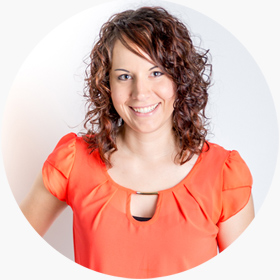
My journey in web development has been a crazy ride and there are definitely several things I wish I'd have known from the beginning.
1. It's perfectly fine (and normal) to learn as you go.
It's impossible to know everything about development from the beginning and every new project is a learning experience.
2. The development community is amazingly supportive.
Through online forums or Facebook groups, it's not difficult to find a bit of help when textbooks, lesson notes, or Google just aren't doing the trick.>/p>
3. It's important to give yourself time to experiment on your own.
I've built my own business out of what started as an experiment with a WordPress website. I never learned anything about WordPress development in school so everything I know is self-taught. If I would have stuck to the projects assigned to me in class or at work, I'd have never discovered my passion.
No one said that starting a web career was easy or quick to start. Let these experts advice serve as both encouragement and inspiration to develop your own successful web career!
You may also be interested in:


